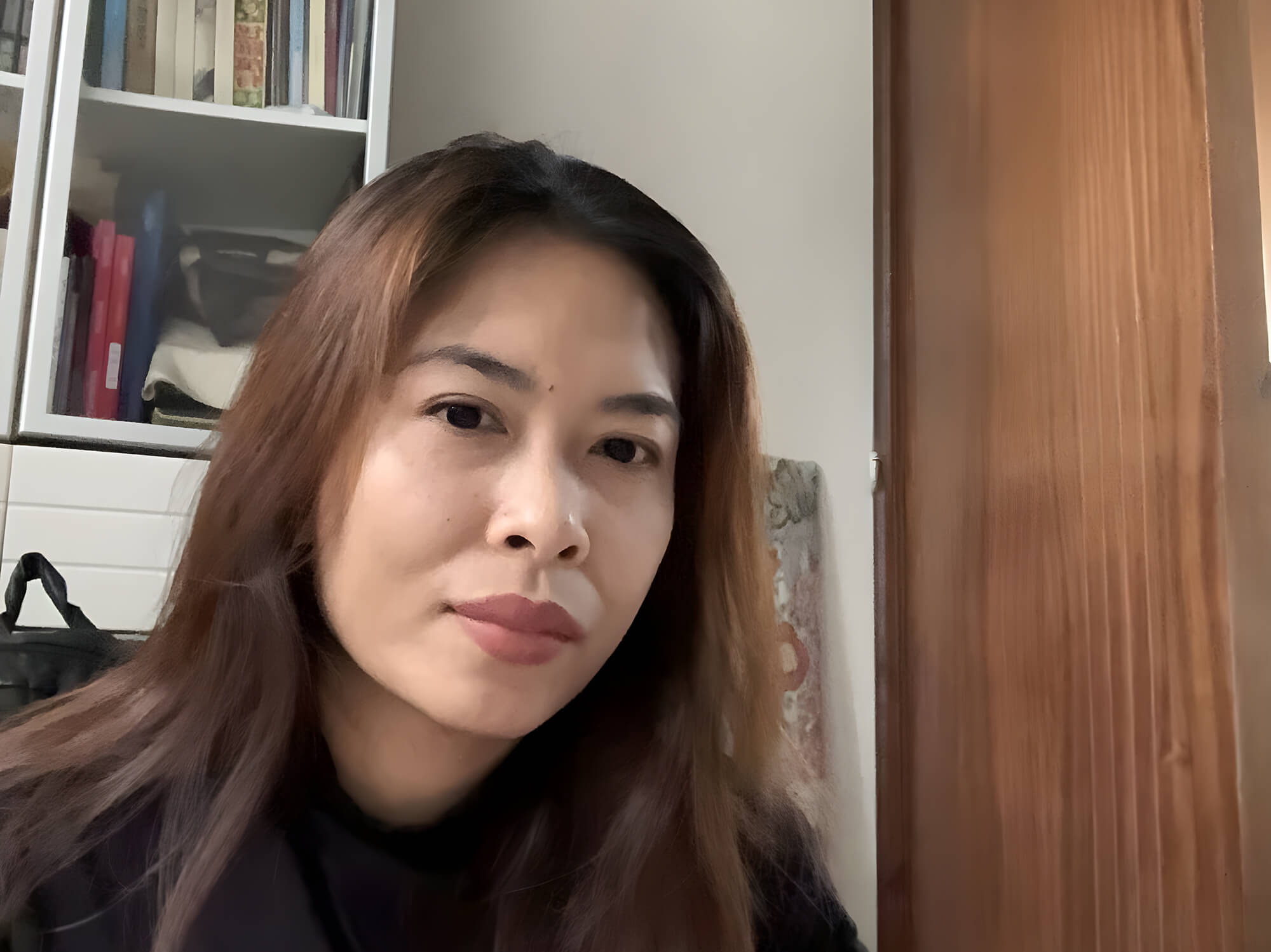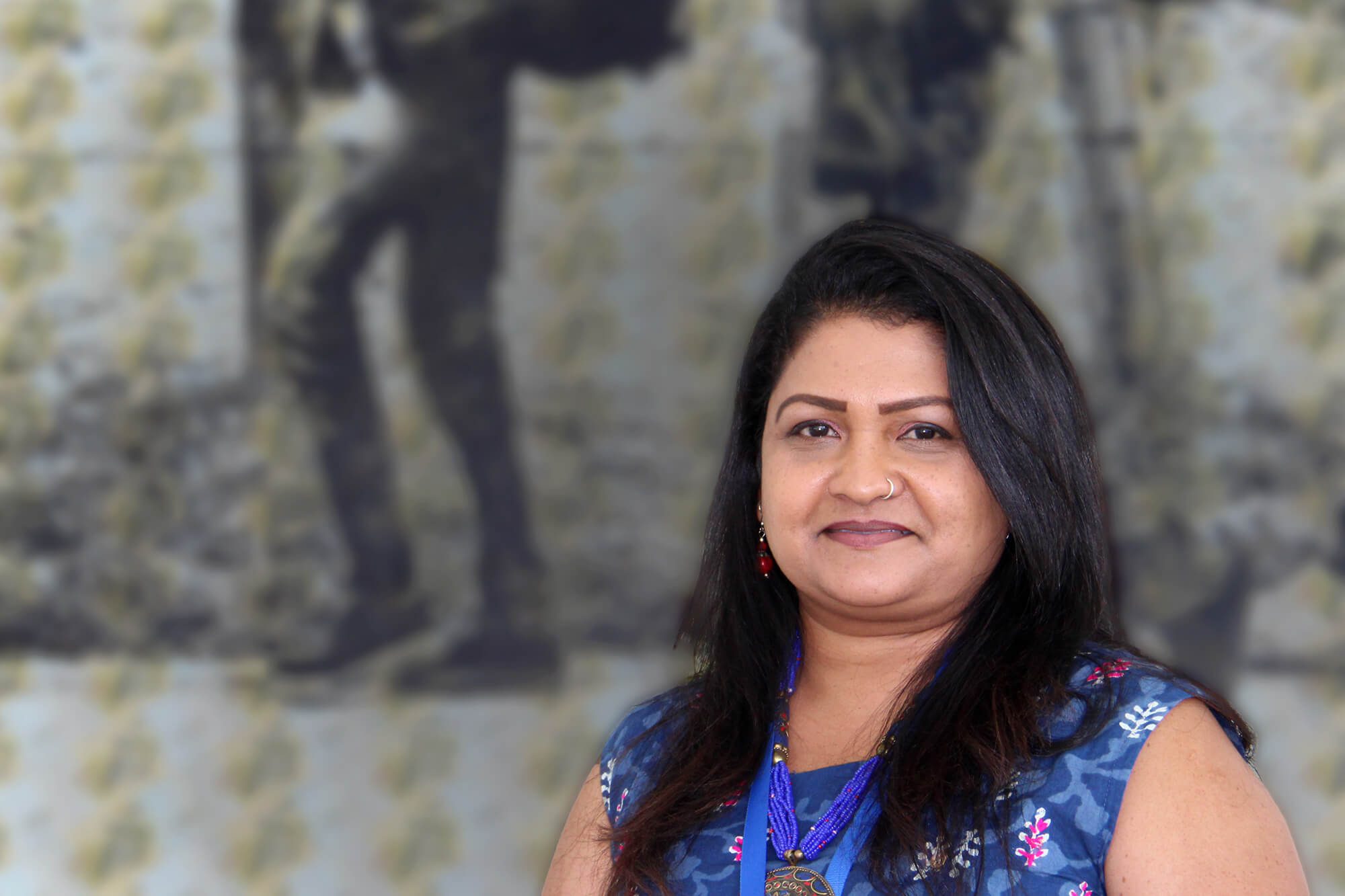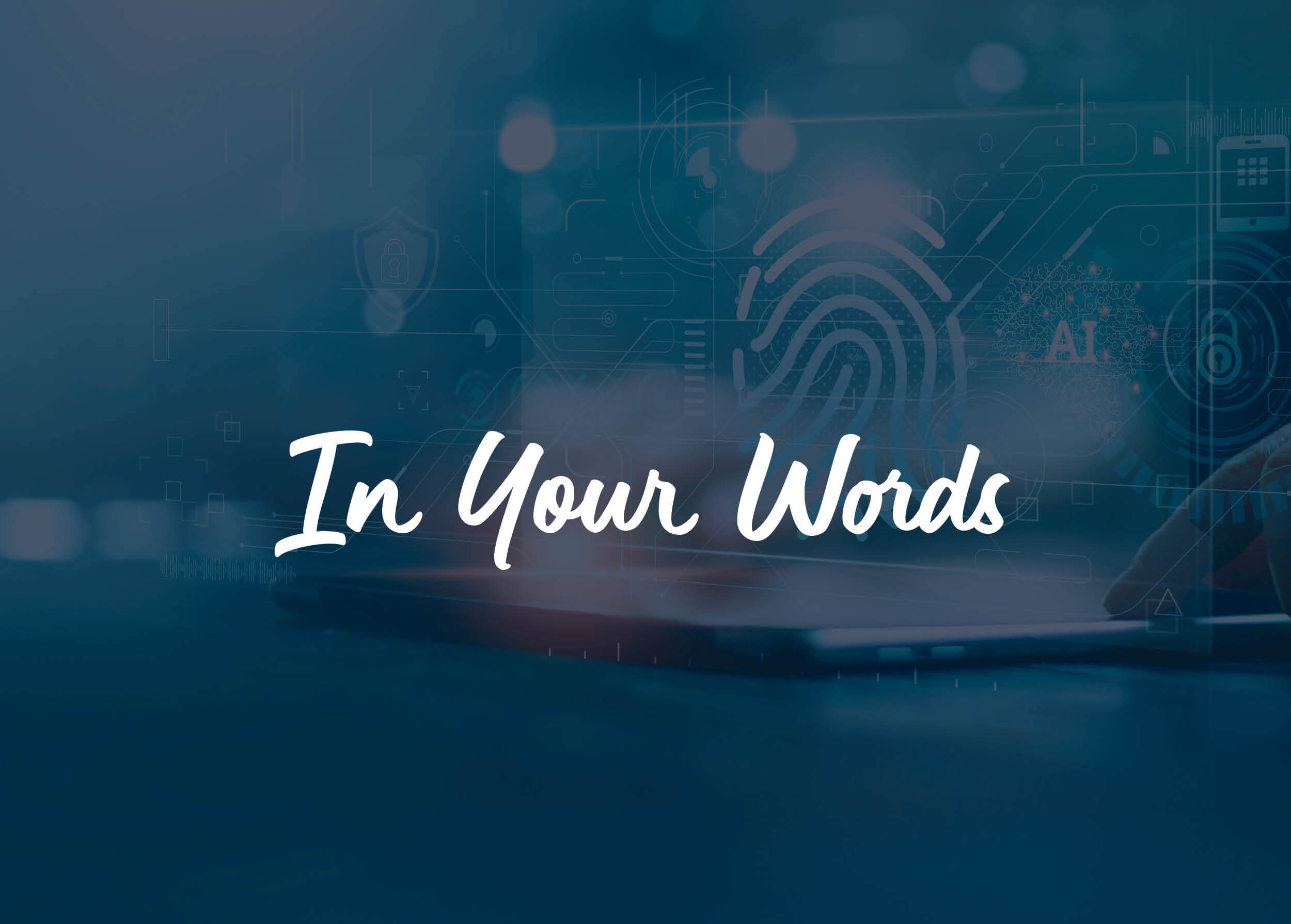



How important is it for you to be informed about your digital rights and privacy online? What regulations and measures are needed to protect online users from harm?

Understanding our digital rights and online privacy is incredibly important. Regulations take time to develop. Often, by the time they are ready to be implemented, they are no longer relevant due to the fast-paced nature of technology.
With the challenges posed by climate change and the emergence of artificial intelligence, it is the generation born between the 1980s and 2020s that will be most impacted. Incorporating the insights and perspectives of this age group in the development of laws and regulations, along with early recognition and prevention of potential risks, can significantly enhance our ability to address these evolving issues effectively. As a young person, I believe we have a golden opportunity to close the gap between our developing countries and the developed ones. But first, we must improve the skill level of our workforce.

Being present online without being well-informed about digital rights and privacy is like sailing into a sea without proper navigation skills. In today’s digital world, I spend a lot of time online and share a lot of personal information with companies and organisations. Thus, it is important for me to understand how this information is being collected, used, and handled, and to have control over it.
Digital rights and privacy online include not only the ability to express ourselves freely online, but also the ability to access information online, be free from surveillance and censorship, understand cybercrime, child data protection, obtain parental consent, have our personal data protected, and be compensated for any harm caused by the misuse of our personal data. To fully understand digital rights and privacy online, it is important to have digital literacy, where people have the basic skills to identify, evaluate, find, and use information in the digital realm.
ASEAN should have a wide range of instruments ranging from data protection laws to privacy-enhancing technologies (encryption, anonymisation, and differential privacy), consumer protection laws, and internet governance. I believe ASEAN can learn from the EU when it comes to enforcing strong regulations related to digital rights and privacy online, such as the General Data Protection Regulation, the Age Appropriate Design Code, the Digital Service Act, the EU User Consent Policy, the EU Cookie Consent, and strong education for civil society.

Everyone is entitled to have their digital data and privacy protected at all times, which should be considered as a fundamental right of all users. No one should be subject to having the data stolen or used for unintended purposes, especially personal or sensitive data, which could cause life-changing effects for individuals. As society is becoming more and more digitalised, companies and governments have the duty to protect online users’ digital lives and data. They need to work together to set up or tighten digital systems that not only tackle, but also prevent all forms of cybercrimes such as identity theft, hacking, scamming, fraud, and phishing. It is critical to ensure the data can only be used for intended purposes with permission from the users.
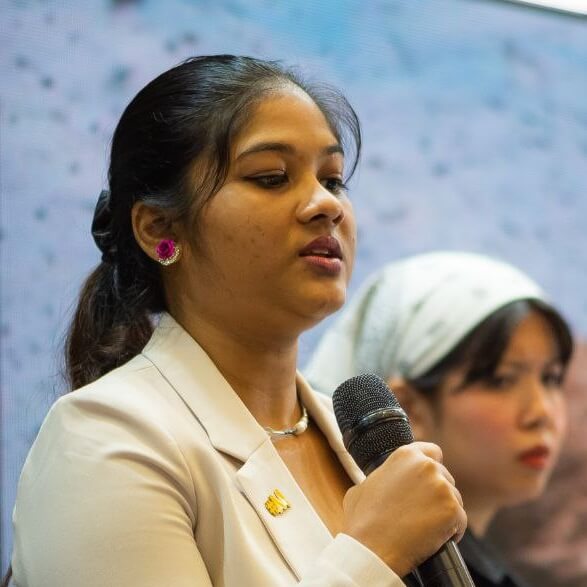
Industrial Revolution 4.0 is upon us, but the incorporation of digital technologies in our daily lives did not adequately address online privacy and digital rights. If our digital rights and online privacy are not properly recognised, they will be trampled on. We have seen digital scams and the distribution of personal images for possible nefarious purposes. Thus, it’s critical for us to be vigilant and uphold our online privacy and digital rights.

It is really important to be informed about our digital rights and privacy online. If we’re aware of the online risks and dangers, then we’ll understand how to prevent them. We should control how much information we share online so that we do not fall for scams, be manipulated, or have our accounts hacked and savings stolen. Some measures to protect ourselves include reading the site’s or application’s privacy policy, making sure we are using a secure connection, and using strong passwords and multi-factor authentication.
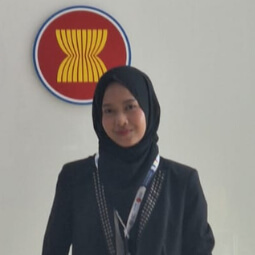
In my opinion, it is very important for technological advancements to go hand in hand with awareness of digital security rights. There should be regulations to protect online users, especially children and women.

It is crucial to be informed about our digital rights and privacy online. Regulations and measures are needed to protect online users from harm and ensure that our personal data is not misused for malicious purposes. Artificial intelligence is an exciting technology, but it also concerns me as it can potentially replace human jobs and lead to further economic inequality.
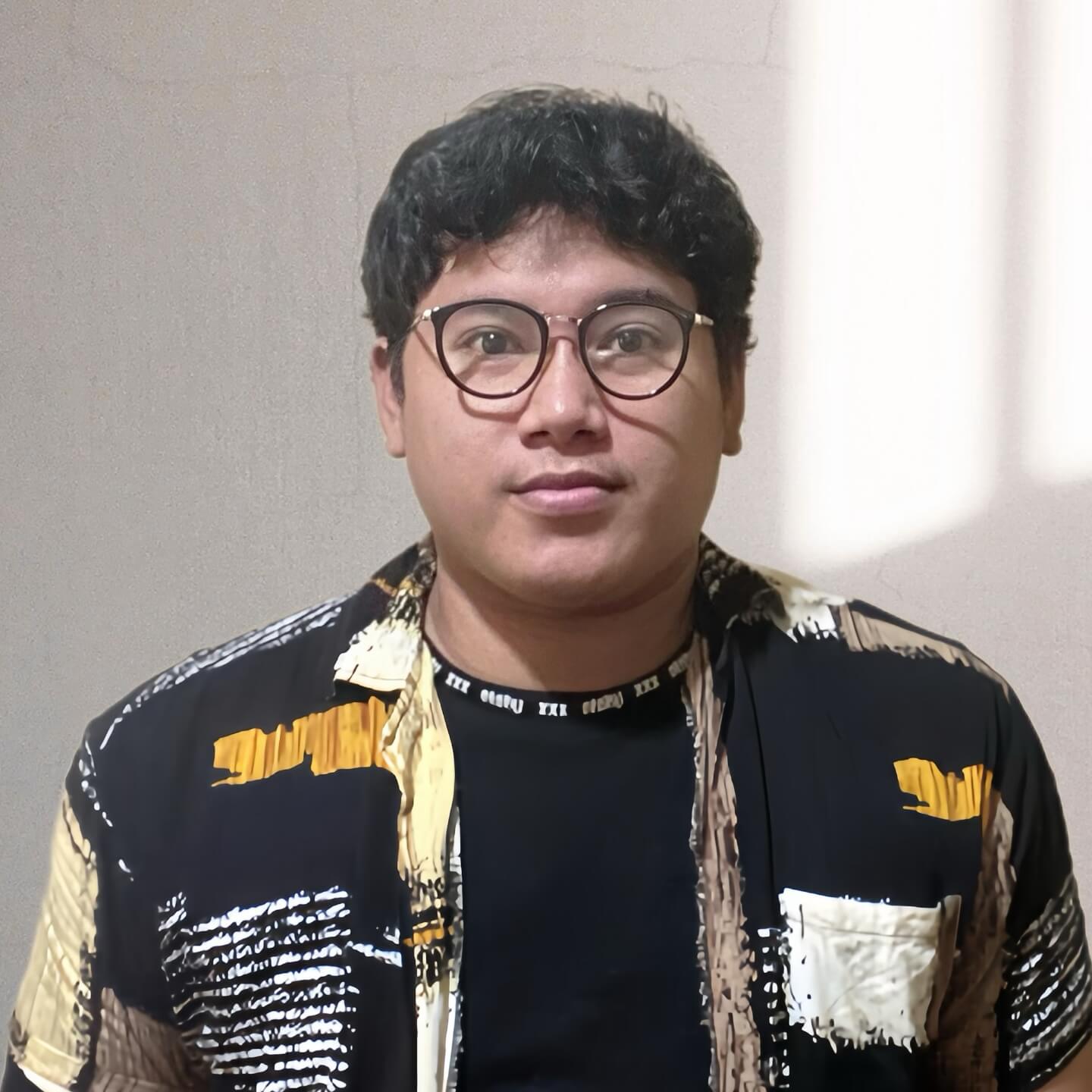
It’s crucial! Social media and technological advancements, including AI, have negative aspects. I value privacy when using social media, so I rarely expose my life in great detail on these platforms. Governments must take this seriously from now on—our information and privacy must be protected. It might not be a significant issue for us, but in 10 or 20 years, as technology and AI advance rapidly, it could affect our children or grandchildren. Strict laws should be implemented now across all platforms to prevent potential victims and losses due to the leakage and misuse of our private data.

It is important for us to be informed about our digital rights and privacy. The Internet exposes us to a lot of mediums to express our opinions and thoughts. Basic freedom of expression must prevail, and the Internet should not be controlled by interested parties to steer propaganda and personal agendas. The Internet, in general, should be the common platform for people, regardless of their nationality, race and religion, to voice out their take on certain issues and highlight concerns. The right to privacy should include digital rights. The users should be part of protecting their own personal data. Digital companies should normalise requesting prior consent of their users on data processing and collection. This procedure clarifies to the users what type of data and personal information they make known to the public. The government, on the other hand, should step up and implement more coherent legislation and effectively enforce laws on digital protection to ensure the safety of the users online.

Extremely important! As our physical and virtual spaces increasingly overlap, I think it is important for all of us to be informed about our digital rights and privacy online. First and foremost, I think it is important to exercise discretion when providing personal information to merchants online. This is especially important with the increasing prevalence of phishing scams. Further, in today’s day and age where speed is prioritised in most transactions, I personally believe that slow and steady wins the race. In other words, I think we should go through terms and conditions carefully and equip ourselves with digital literacy and a basic legal understanding of the digital space before clicking the “accept” button. That said, the individual’s effort is necessary but not sufficient to protect ourselves from online harm. State regulations and inter-state regulations must be at the forefront of ensuring user safety.

By utilising strong passwords, sharing personal information with caution, and monitoring our accounts regularly, we can lessen our risk of being victims of cybercrime. However, we need regulations to protect online users from harm. The government must make sure that owners of online platforms uphold their duty of safeguarding platform security. Second, we need to make sure that an independent regulator is created and has the power to supervise and enforce regulations. Lastly, regulations on protecting individuals, especially children from online harm, should be harmonised and clarified.

Personally, digital space is an alternative platform allowing people to present themselves and exercise their human rights, especially the right to freely express their thoughts. However, it would be better to have privacy protection to keep me safe from personal information leakage, threats, media violence, and logical fallacies. Apart from a number of laws on data protection, and social media principles, I think the core regulation and measure is to comprehensively educate people with digital awareness, including digital literacy and critical thinking to refrain from logical fallacies, which should be commenced as a compulsory education.

Everyone has the right to communicate using social media, but this right does not include infringing on others’ rights. These include slandering others and telling lies, stealing information you don’t own, defrauding people, spreading obscene things, and exploiting young people. Minor children are often affected by this, because of the widespread availability of mobile phones. Parents often do not teach their children about using the right applications or are unaware of the appropriate age for their children to use devices.

Online regulations can help to ensure that people’s personal information is safe and people are not exposed to harmful content. We can assess a country’s digital regulations framework using the 31 regulatory elements from the World Bank’s Global Data Regulation Diagnostic Survey. The three main categories are cybersecurity (18 elements), personal data protection (12 elements), and non-personal data protection (1 element). Survey results revealed that ASEAN as a group falls under the moderate category in terms of the existing frameworks for safeguarding cybersecurity and non-personal data, and at an early stage of development when it comes to the regulatory framework for protecting personal data (World Bank, 2021). Based on best practices, some regulations to protect online privacy from harm include: (i) Data protection laws: These laws regulate how companies can collect, use, and share personal information; (ii) Privacy laws: These laws protect people’s right to privacy, including their right to control how their personal information is used. For example, Consumer Privacy Act, Children’s Online Privacy Protection Act, Health Insurance Portability and Accountability Act; (iii) Cybersecurity laws: These laws regulate how companies can protect their computer systems and networks from cyberattacks; (iv) Online safety laws: These laws protect people from harmful content online, such as cyberbullying and hate speech.
Do you understand AI and what excites or concerns you most about it?

Artificial Intelligence, with its transformative promise, holds specific allure for the Bac Giang province. Imagine AI-driven agricultural tools predicting the best sowing seasons or AI models forecasting potential landslides in mountainous tracts. Yet, alongside the promise lies the peril. Without clear guidelines, AI can inadvertently reinforce societal biases or be misused. It’s imperative to ensure AI’s integration is accompanied by ethical guidelines, ensuring it

What concerns me the most about AI is that it requires deep technical expertise and proper training. AI is used in a lot of sectors and one thing that needs to be addressed is that it is taking away jobs from humans such as customer services, which will increase unemployment.

Recently, I have encountered massive information about AI on various social media. AI makes me more anxious about myself and humanity at large. The ease, speed, and intelligence of AI make me less hardworking, pessimistic, and unsure of myself. I also worry that in the future, human thinking and work will be completely replaced by AI.

I work in the digital world for a media company. I often deal with content, editing, design, and so on. Initially, to me, the idea of AI was frightening, with concerns about whether it would hinder human abilities, jobs, etc. But after understanding it better now, AI is not bad. In fact, I’m assisted by AI in my work. For instance, if I need good copywriting, I use AI. I use AI to improve my writing and grammar, get content ideas, and conduct research.
AI is not a technology that makes me and fellow media creators like graphic designers, content creators, and social media managers obsolete or unnecessary. On the contrary, AI enables us to innovate further with ideas we previously found difficult to execute without AI. Now, we can overcome those challenges and improve our work using AI.

Yes, I know about AI. I am interested in studying this because it will be very useful and needed in the future. But on the other hand, I also feel concerned about digital security. By using AI and also digital traces that we accidentally and unexpectedly upload on the media, people will very easily access these things and there is a possibility that they can be misused.

It’s definitely going to be a new frontier for the world. I would be interested in understanding it and using it for art or community purposes if I had the skill set and I could be assured of checks and balances. That is because my main concern with AI, especially with ones that sweep data from the entire internet, is that it does not respect copyright laws.

As an IT student who has been studying neural networks and knowledge engineering, I can definitely say it is the next biggest thing in the market. The AI that was used in the first robot ever made in the 1920s has come a long way. An example is Toshiba company’s robot, Sophia. The AI used in Sophia is so advanced that some people think there might be more robots in the future that can very well replicate or even go beyond what humans can do! The development of AI has been very rapid. For example, AI has now achieved human-level performance in tasks like object detection and emotion recognition. These improvements in AI have been perceived as groundbreaking and it is exciting to discover what else AI will be able to do in just a few years. However, even as someone who is interested in this field, there are some concerns that strike me as AI can indeed take people’s jobs in the future, such as in manual labour. This is something very worrisome not only to scientists but also to society as many other business companies might start using AIs. Still, AI can improve people’s lives if humanity truly knows how to handle it well.

Digital transformation is critical to national development. However, many people throughout the world still do not have access to the internet. They have no concept of digital literacy or digital privacy. We must also engage these folks in the digital realm so that they are comfortable with it. Last but not the least, there is no doubt that AI is a very useful tool. I have no excitement about using AI since it is created by humans and will not be better than humans’ creativity—that is the universal truth.

The ability of AI to revolutionise industries, enhance medical diagnoses, and automate processes is undeniably thrilling. However, its rapid development also raises concerns, particularly regarding ethics and bias. The ethical use of AI is critical to prevent discrimination and ensure fairness in decision-making processes. There is also a need for regulations that govern the development and application of AI, striking a balance between innovation and ethical considerations. Moreover, the idea of AI-driven job displacement is a real concern, and we need policies to retrain the workforce and ensure a just transition. While AI holds immense promise, it is vital that we address the ethical and societal challenges to fully harness its potential.

I love the fact that AI could process billions of data in a short period of time, which would otherwise take humans years to do. With this advantage, we could use AI to create multiple predictions in different situations and cases. I really want to see the integration of AI in the agricultural sector. If used correctly, AI could help modern farmers and industry players to increase agricultural yields, thus combating the food scarcity crisis. In Malaysia, food security is among the urgent issues we need to tackle. Using AI in this industry could be a game changer for this nation to satisfy the demand of its people.

As a person who has used AI, I only understand the benefits it can provide to me, but I believe that I have not fully grasped its full potential which excites me because I appreciate how it personalises the learning experience. AI possesses the ability to tailor educational content or ideas to individual needs and preferences. It can adapt to a learner’s pace, style, and prior knowledge, making the learning journey more engaging and effective. Whenever I do not understand something, I ask the AI some questions, explain it in a different manner, or ask for more examples. Although I already attained my degree and am a working adult, I look forward to witnessing how it will continue to revolutionise the way we learn and grow, inside and outside of the classroom.

AI integrates technology in various tasks which traditionally require human intervention. Its concept is to imitate human output at a much-accelerated pace, decreasing time consumption and increasing productivity. These developments have proven to be a revolutionary tool for different fields. However, what concerns me the most is the ethical issues that come with the use of AI. One of which is privacy. AI, particularly data-driven algorithms, has the potential to collect and analyse massive amounts of personal data, intruding on people’s right to privacy. User information, for example, is frequently utilised for targeted advertising without explicit authorisation.
AI bias is also an issue. AI systems may inherit biases from the data on which they are trained, resulting in discriminating outcomes. Incorrect identifications, for example, have been related to racial and gender biases in facial recognition systems. Another is job loss. While AI boosts productivity, it also has the potential to replace labour in some industries, raising concerns about job security and other societal consequences. Another ethical concern is how to hold the makers of AI systems accountable and provide transparency in their decision-making. It is difficult to assign accountability when AI systems make choices, especially in industries such as banking and healthcare. While AI has various benefits, ethical concerns must be addressed in order to ensure responsible AI development and use.

Digital transformation is undeniably on the rise, promising greater efficiency in our daily lives. Coming from a technical background, dabbling with Software Engineering, Artificial Intelligence, and Augmented Reality, etc., I’ve quickly realised that as we demand more from technology, it, in turn, demands more from us. We’re expected to apply critical thinking, guided by our values and ethics when making informed decisions. Yet, these decisions can be marred by biases, prejudices, misinformation, misconceptions, misunderstandings, etc. We must remember that AI is a reflection of us as humans, echoing our inherent biases and such via the data it’s fed. It’s crucial for us to be aware of our digital rights and online privacy. While we move towards a more secure digital realm, more solutions might include linking our citizenship IDs to our phone numbers, social media accounts, emails, etc. This raises questions like, “How secure is our digital identity?” and “Who holds the custody of these details?”
For the comprehensive protection of online users, we may need to look into establishing protocols, policies, and agreements nationwide or maybe even internationally. Only with these safeguards in place can we harness the true potential of globalisation and fully understand our role as digital global citizens.





